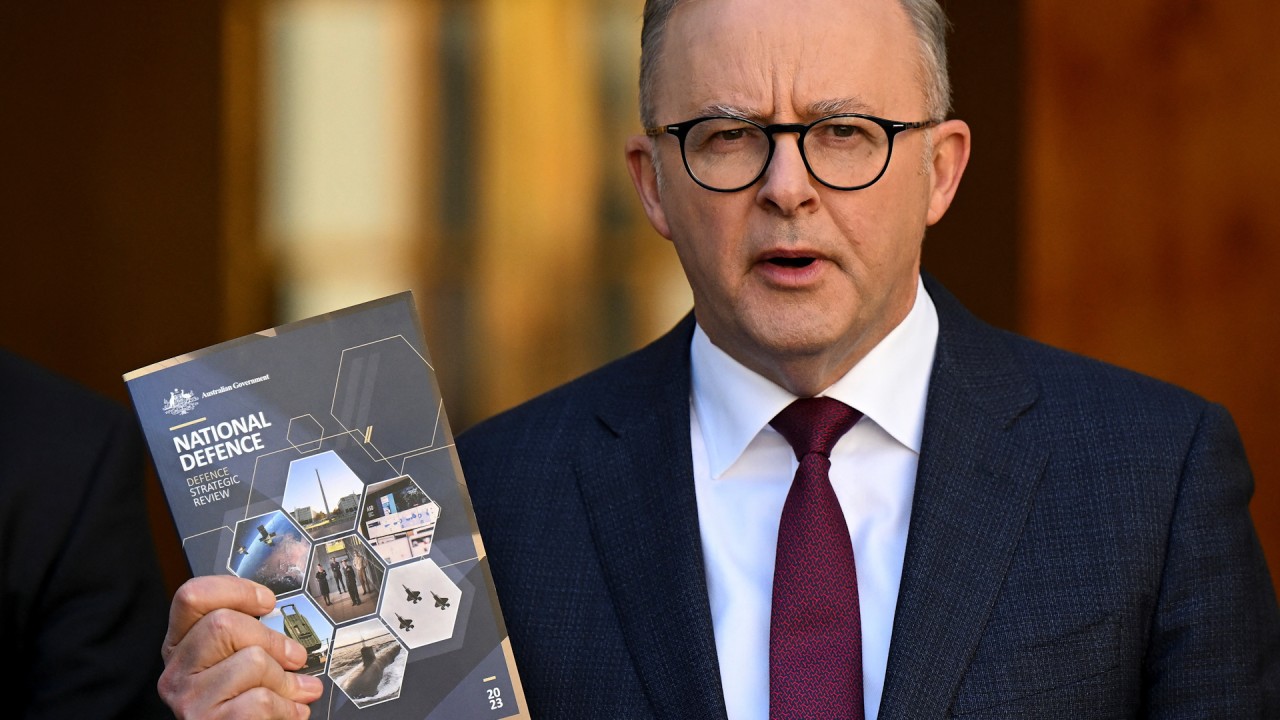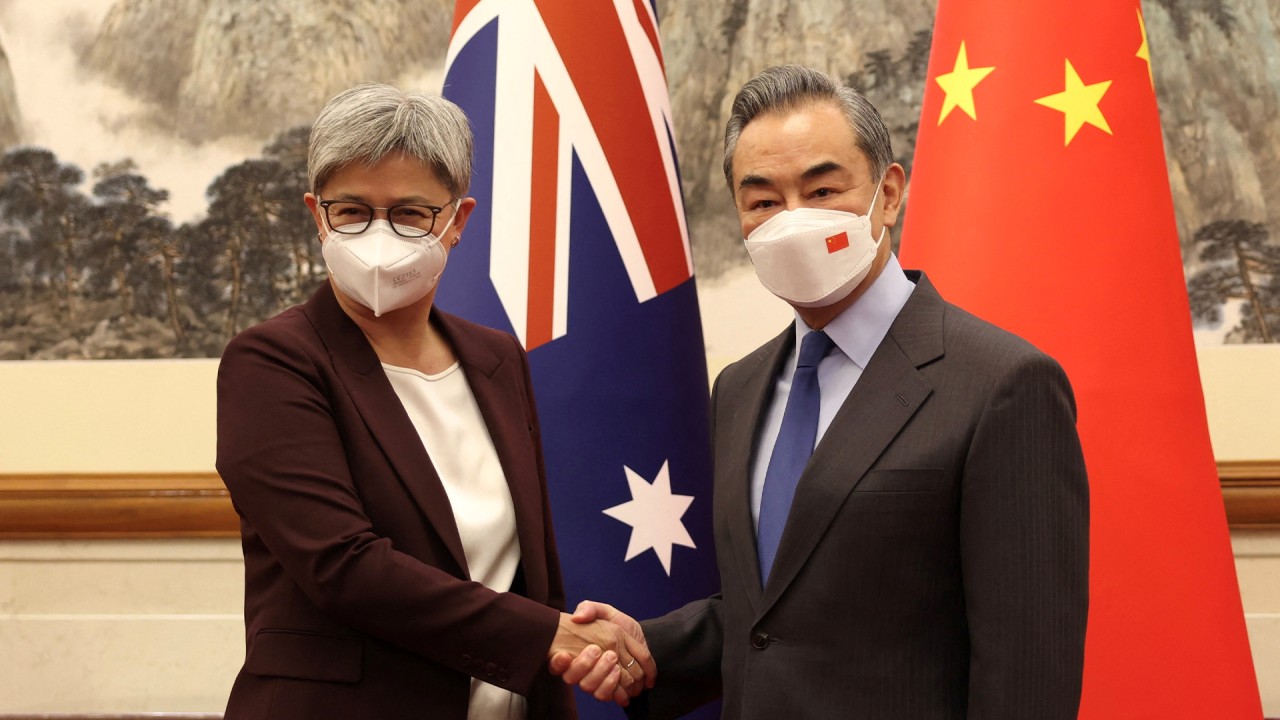
Death knell sounds for Australian diplomacy in the region after US ministerial talks
- The degree of US-Australia military integration agreed on suggests that future decisions about regional conflicts will be made by Washington and rubber stamped by Canberra
- This will have a major impact on the way Australia is able to shape its relationship with Asia, particularly China
The Australia–US Ministerial Consultations (AUSMIN) have effectively confirmed Australia’s status as a client state of the United States. This is a significant change from its previous status of a friend and ally, because it hands a large slice of Australian sovereignty to a foreign power.
The degree of military integration agreed on by US Secretary of Defence Lloyd Austin and Australia’s Defence Minister Richard Marles suggests that future decisions around conflicts in the region are likely to be made by the US and rubber stamped by Australia.
This will have a major impact on how Australia is able to shape relations with Asian nations, especially China. Australia is important in the region, although perhaps not as important as it likes to imagine. In many ways, the AUSMIN talks further isolate Australia from the region and make the country less relevant in the formulation of regional decisions.
China, in particular, may well re-evaluate relations. It now makes sense to treat Australia as a by-product of US policy rather than as a relatively independent entity. It can be assumed that Australian defence policy, and to a significant extent Australian foreign policy, will merely echo that of the US.
Australia will now see “regular and longer” visits of US submarines to a naval base in Western Australia, a regular rotation of US Army watercraft and American access to more Australian airbases.
The US will help Australia with its own guided missile development capabilities, potentially making the country a manufacturing base that supplies Washington with weapons. This week, it was reported that the US Air Force is planning to build a “mission planning” and operations centre in Darwin.
Earlier US Force Posture Initiatives involving American bombers and submarines are essentially relevant only to any future US conflict with China. The initiatives include the pre-positioning of military material and troops in Australia that would enable the US to launch attacks.
The degree of integration confirmed at AUSMIN means Australia will become diplomatically weakened, if not effectively irrelevant, in the region. It means Australia will rely more on the threat of or use of force which, in turn, is projected at the behest of the US.
The high level of integration, including embedding US intelligence officials in Australian offices and some US personnel on submarines obtained under the Aukus alliance, means Australia could ultimately be held hostage to US decisions.
Despite denials and assertions that Australian policy remains a sovereign choice, this is Stockholm syndrome in action at a national level. Australia has convinced itself it is not a victim of foreign influence in its most consequential defence and foreign policy decisions.
AUSMIN builds on earlier secretive defence deals under which Australia does not have full access to the intelligence products or activities. This already applies to intelligence products from bases at Pine Gap and North West Cape. It is also not clear whether Canberra has oversight over the drone assassinations that are said to be coordinated using US base capabilities in Australia.
US policy objectives have become increasingly aligned with those of Australia. However, this was not always so, and there have been times of divergence in foreign policy implementation. Former prime minister Malcolm Fraser discussed these tensions in his book Dangerous Allies
Marles has now closed that gap by replacing the concept of cooperation with integration, which essentially sees Australia become part of US forces and effectively subject to their command structure and decisions.
All this must have made it uncomfortable for Australian Foreign Minister Penny Wong to participate in the AUSMIN discussions, which have undermined Australia’s diplomacy in the region. Many will suspect that Australia is now reading from a script approved by the US.
The talks went beyond the jovial backslapping that usually characterises them. As a result, the Association of Southeast Asian Nations and China may well re-evaluate how they see Australia’s role in the regional architecture of agreements, treaties and discussions.
The AUSMIN announcements have reduced Australia’s room for diplomatic manoeuvre and influence. They have also reduced the imperative for China and the region to engage with Australia as an independent entity in the formulation of policy responses. Australia, it seems, will have little choice but to do the bidding of the US.
Daryl Guppy is an international financial technical analysis expert and a former national board member of the Australia China Business Council. The views expressed here are his own



